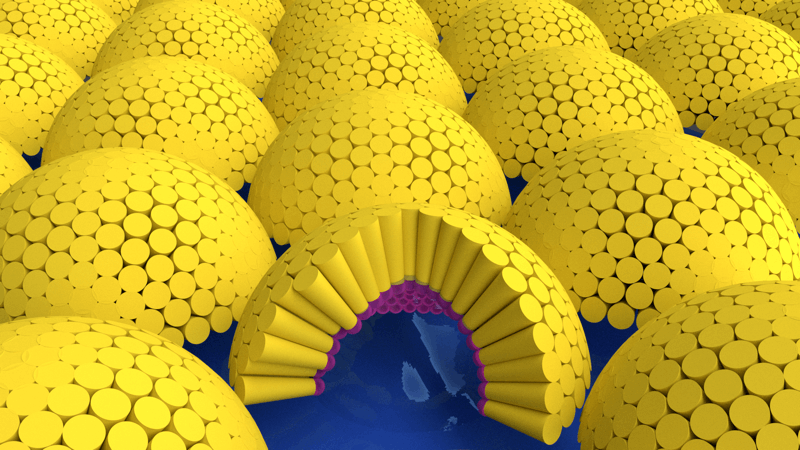- Principles of Surface and Colloid Science
- Thermodynamics of surface tension, adsorption and interacting surfaces, as well as the relevant experimental approaches.
- Capillarity
- Electrostatics of interfaces and titration of surface charge
- Electrokinetic phenomena
- Surface forces: double layer forces, van der Waals forces, steric forces, hydration forces and colloidal stability
- Stablising dispersions
- Adhesion
- Wetting, including superhydrophobicity.
- Applications of surface chemistry, with focus on paper industry, flotation and cleaning
- Adsorption: From gases and liquids, including polymers, polyelectrolytes and the formation of polyelectrolyte complexes. Solution behaviour of polyectrolytes.
- Surface modification
- Surfcatant properties and association to micelles, vesicles, liquid crystals and biomembranes.
- Emulsions, microemulsions and foams.
- Gels
CK204V Surfaces, Colloids and Soft Matter 5.0 credits

The course is online with a series of pre-recorded lectures, with periodic zoom "tutorials". We will address a broad range of surface and colloidal principles and see how these are applied, for example in cosmetics, recycling, detergency, food technology and pharmaceuticals. Some of the sustainability issues we face in this discipline and their solutions form a continuous theme. We will discuss the surface science of nature – how nature solves such challenges as water harvesting by beetles in the desert, how geckos stick to the ceiling and the lotus leaf effect.
Information per course offering
Information for Autumn 2025 Start 27 Oct 2025 single courses students
- Course location
KTH Campus
- Duration
- 27 Oct 2025 - 12 Jan 2026
- Periods
Autumn 2025: P2 (5 hp)
- Pace of study
25%
- Application code
10100
- Form of study
Distance Daytime
- Language of instruction
English
- Course memo
- Course memo is not published
- Number of places
10 - 30
- Target group
- No information inserted
- Planned modular schedule
- [object Object]
- Schedule
- Schedule is not published
- Part of programme
- No information inserted
Please note that Students not located in Sweden may have problems attending a course at KTH.
You could meet obstacles if you're required to pay fees or if you do not have a Swedish Mobile BankID.
Contact
Course syllabus as PDF
Please note: all information from the Course syllabus is available on this page in an accessible format.
Course syllabus CK204V (Autumn 2023–)Content and learning outcomes
Course contents
Intended learning outcomes
After completing the course, a student should be able to:
- Explain aspects of surface, colloid and soft matter chemistry.
- Apply surface and colloid science on interfacial phenomena.
- Communicate and present surface and colloid science.
Literature and preparations
Specific prerequisites
Equivalent knowledge to a bachelors degree, minor or major, in chemistry, chemical engineering, or material science. and English corresponding to English B/6.
Literature
Examination and completion
Grading scale
Examination
- RAP1 - Report, 3.0 credits, grading scale: P, F
- INL1 - Assignment, 2.0 credits, grading scale: P, F
Based on recommendation from KTH’s coordinator for disabilities, the examiner will decide how to adapt an examination for students with documented disability.
The examiner may apply another examination format when re-examining individual students.
If the course is discontinued, students may request to be examined during the following two academic years.
Examiner
Ethical approach
- All members of a group are responsible for the group's work.
- In any assessment, every student shall honestly disclose any help received and sources used.
- In an oral assessment, every student shall be able to present and answer questions about the entire assignment and solution.
Further information
Course room in Canvas
Offered by
Main field of study
Education cycle
Supplementary information
Overlaps with the course KD2350 Surfaces, Colloids and Soft Matter 7.5 credits